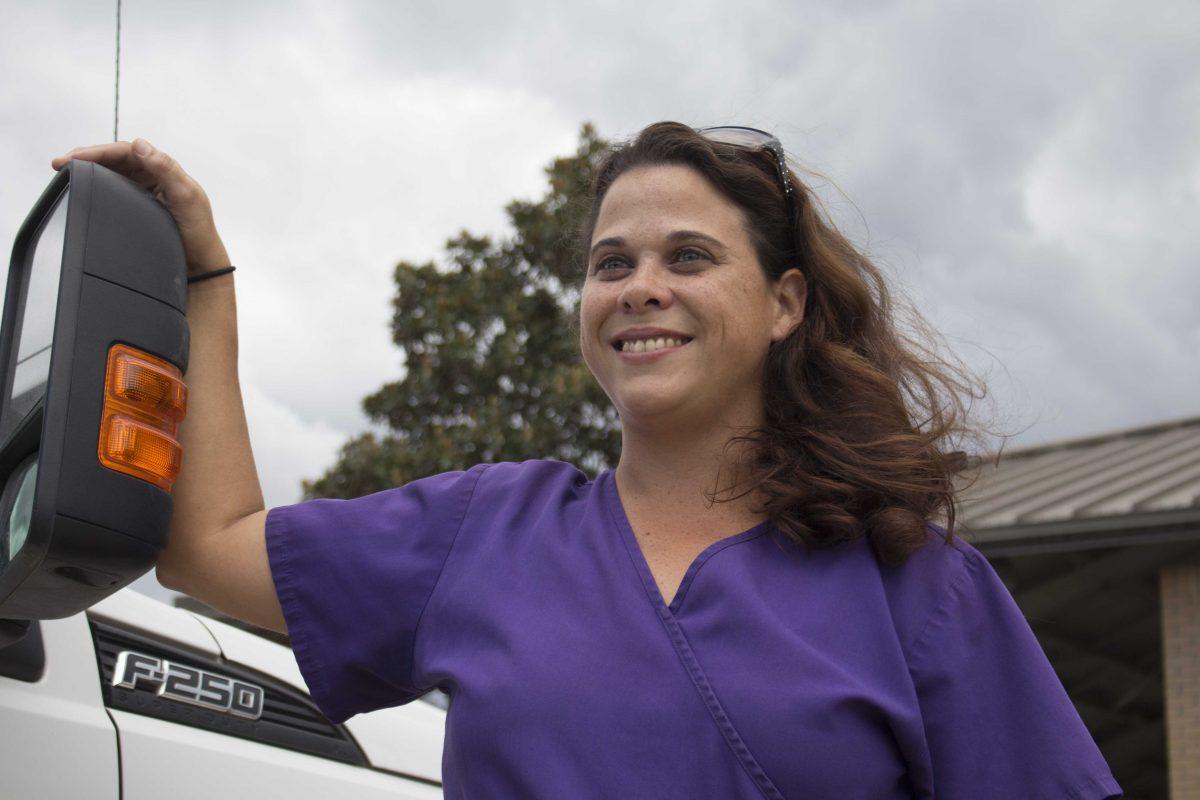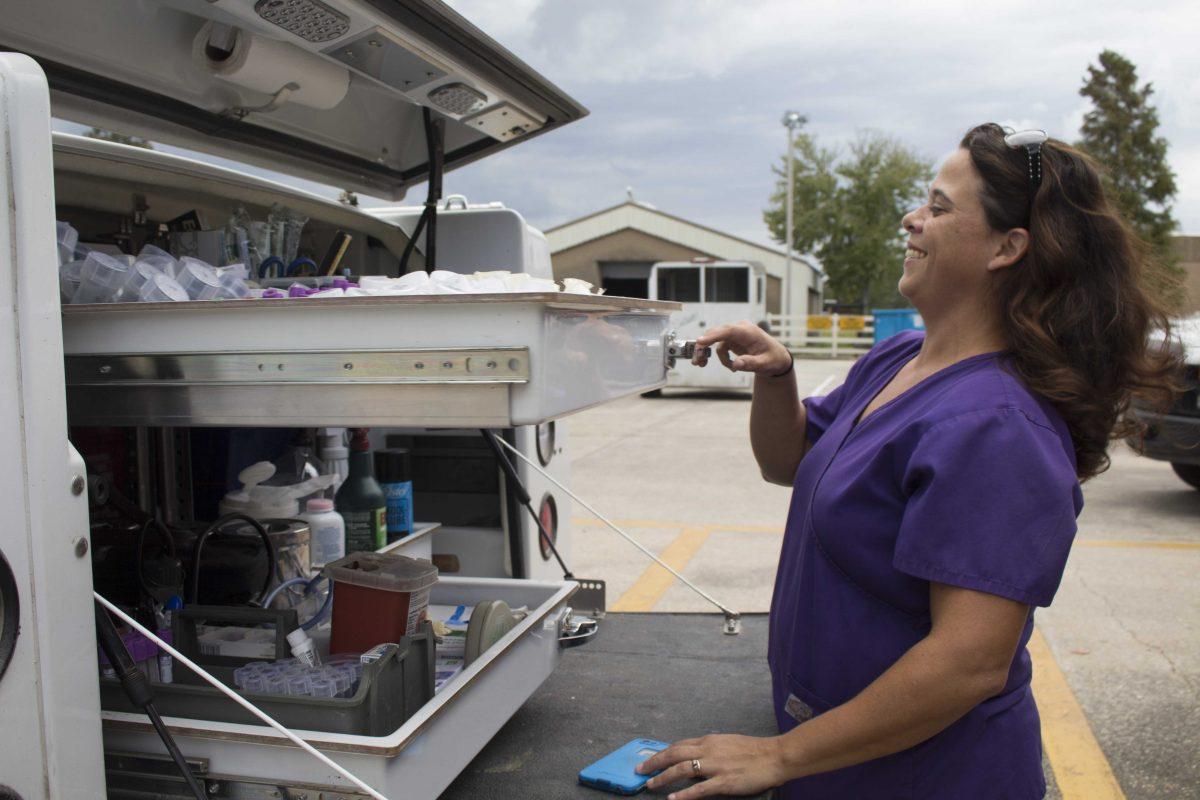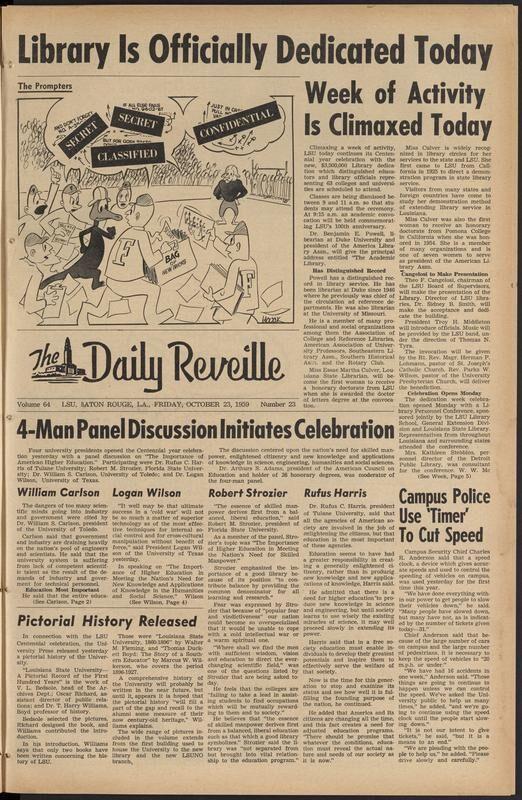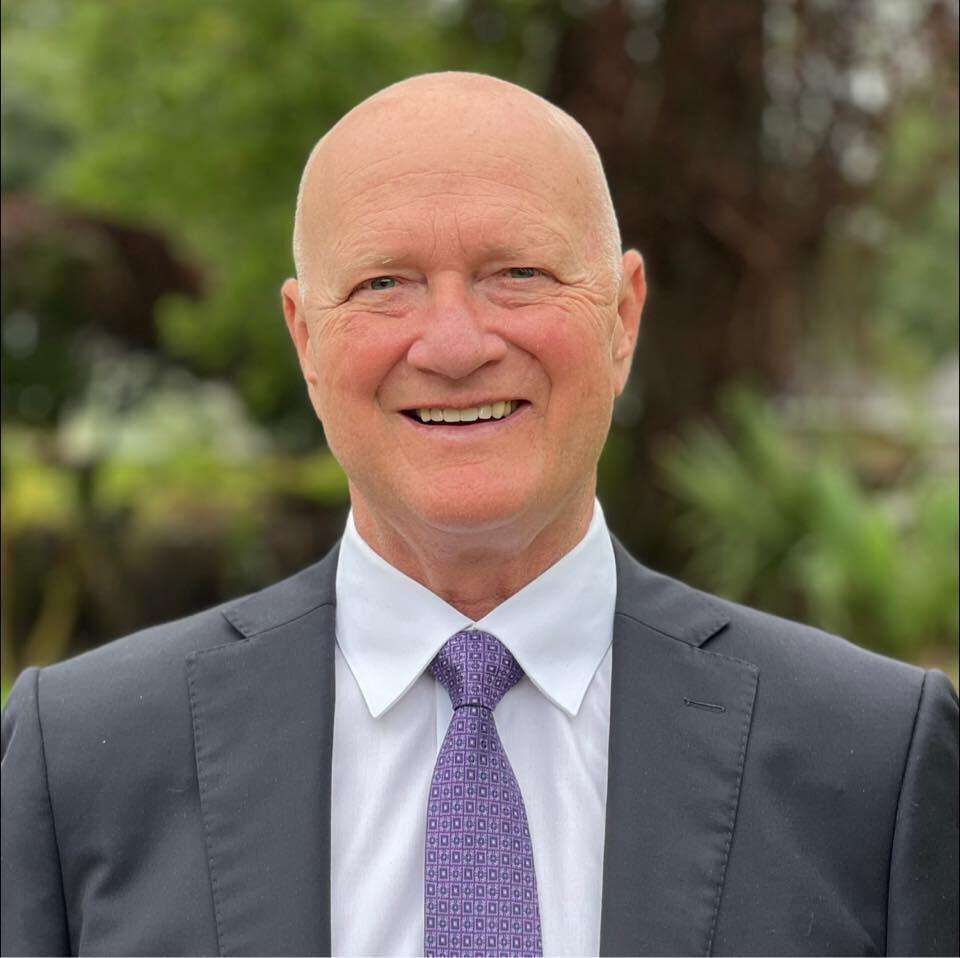Associate clinical specialist Darla Garon, of the LSU Veterinary Teaching Hospital, is one of two recipients of the Champions of the Cause Award, Boehringer Ingelheim and EquiManagement magazine has announced.
The Champions of the Cause Award is an annual award that highlights the importance of the work of equine veterinary technicians and assistants. The program was founded in 2015 by BI in partnership with EquiManagement and the American Association of Equine Veterinary Technicians and Assistants (AAEVT).
The winners receive all-expenses-paid trips to the 2017 AAEVT Annual Conference during the American Association of Equine Practitioners (AAEP) Annual Conference during the Convention in San Antonio, Texas, according to Equimanagement.
Dr. Rebecca McConnico, former University professor and veterinarian at Louisiana Tech University nominated Garon.
“She has advanced the critical care of equine patients and the veterinary teaching hospital of LSU more significantly than anyone I’ve worked with there,” McConnico said. “She’s been a tremendous role model and teacher and a huge support to the equine internal medicine service. She’s just a team player.”
Garon has worked for the LSU Veterinary Teaching Hospital for six years. She is an equine medicine and ambulatory technician and coordinator of the Equine Critical Care Team, which trains 20 to 30 student workers each year to help with critical patients during foaling season.
Garon grew up in the Baton Rouge area and began working in barns at the age of 15.
“I would wake up at 5 a.m. to clean stalls to pay for my horse’s board then got involved in training aspect. It’s always been a part of my life,” Garon said. “Always I was that child that would pick up anything and bring it home, dogs, cats, turtles, lizards, always had a fascination with horses.”
Garon has managed barns at Prevent Child Abuse Louisiana, and she started an equine assisted psychotherapy business with her mother.
“I really love teaching the students and watching them succeed, like when they place their first catheter, seeing the excitement on their faces keeps it fresh,” Garon said.
As a technician, Garon is responsible for patient care and assists with labs, allowing students to help if it is safe and they are confident.
“I have a real love of neonates and foals, but the ones we get are usually pretty bad off,” Garon said.
Foals, horses under one year of age, sometimes forget everything from how to nurse or stand. Many believe this is due to a lack of oxygen in the brain during birth, Garon said.
“Those are the most rewarding cases because you get something that can’t fend for itself and would not make it unless you do something,”Garon said. “We teach them how to nurse and stand again and usually within a couple of days they turn around and are normal.”
LSU veterinary technician Darla Garon talks about "Champions of the Cause," an equine health care award she received, at the LSU Veterinary Teaching Hospital on Friday, Oct. 30, 2017.











